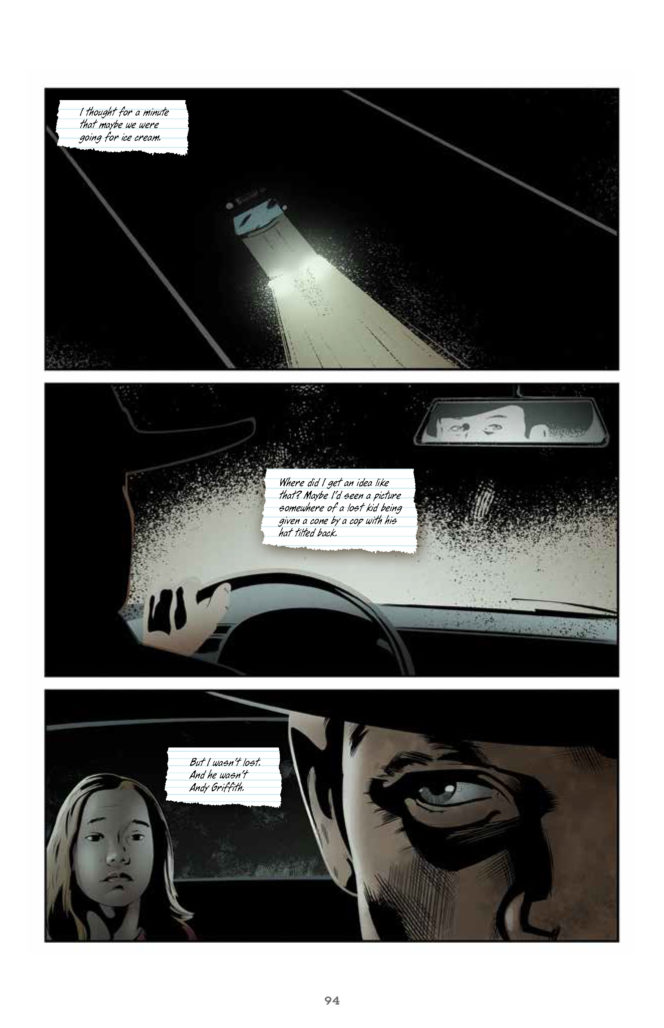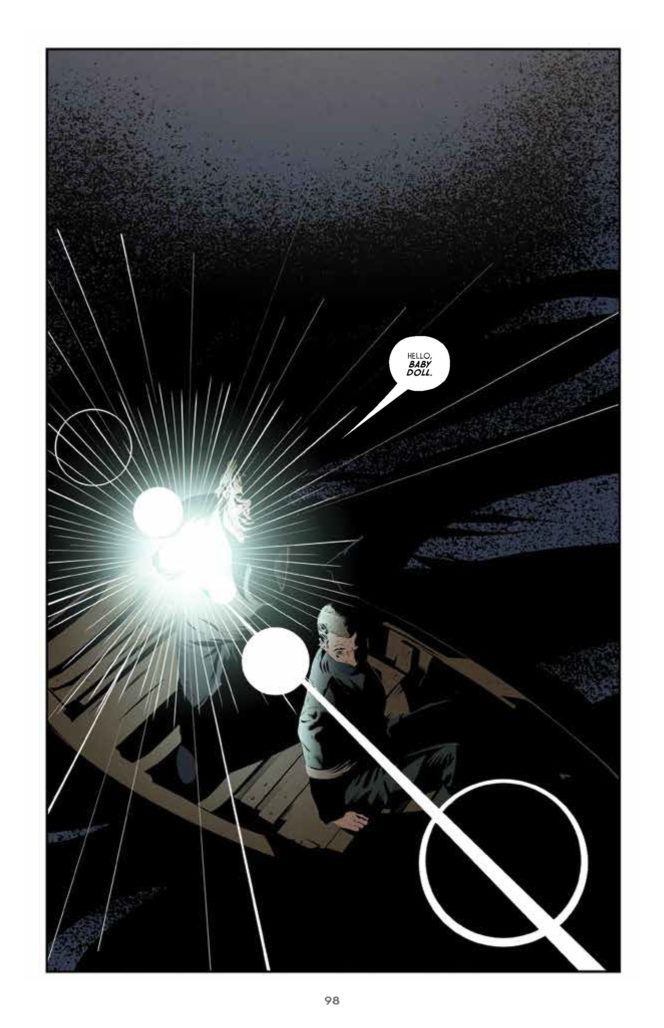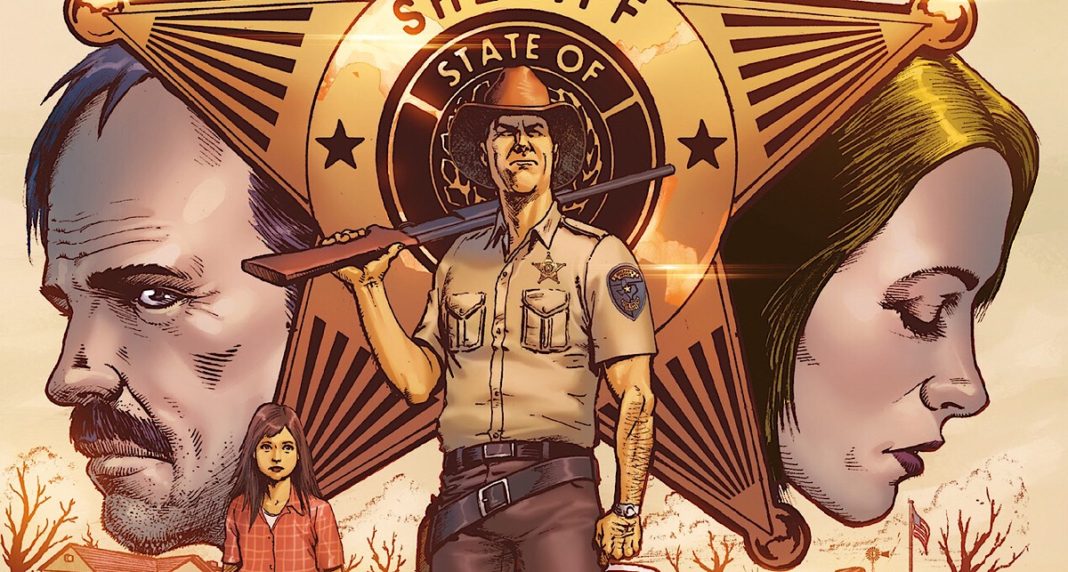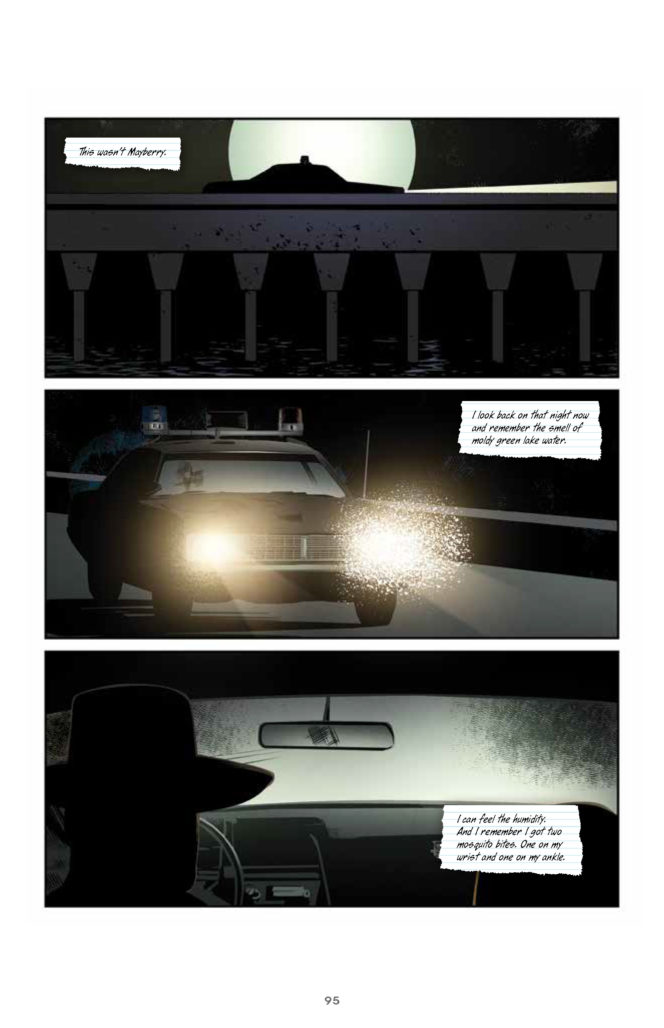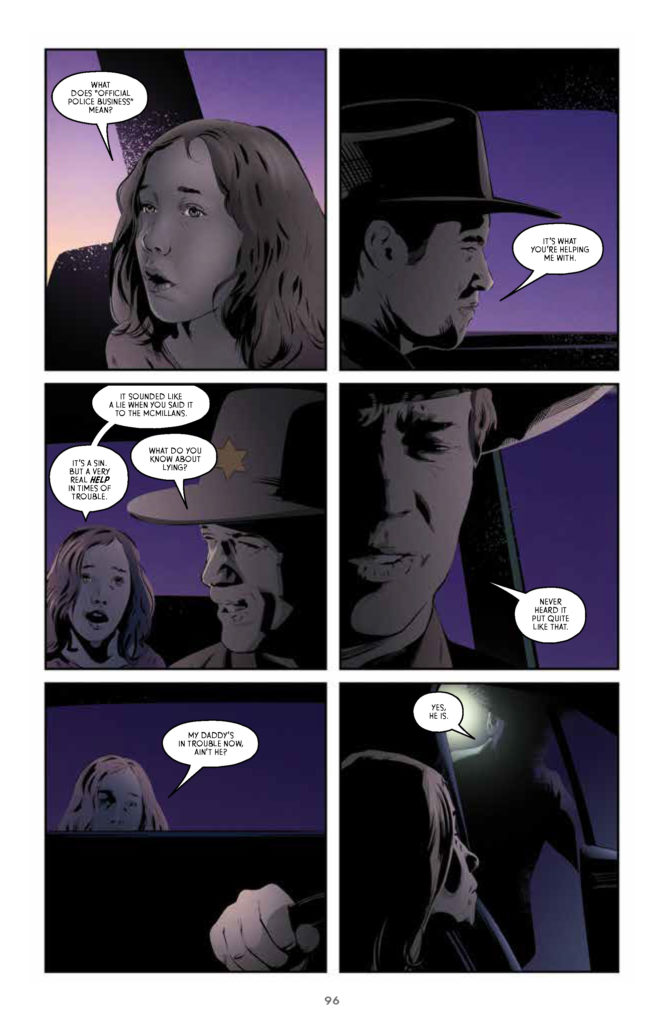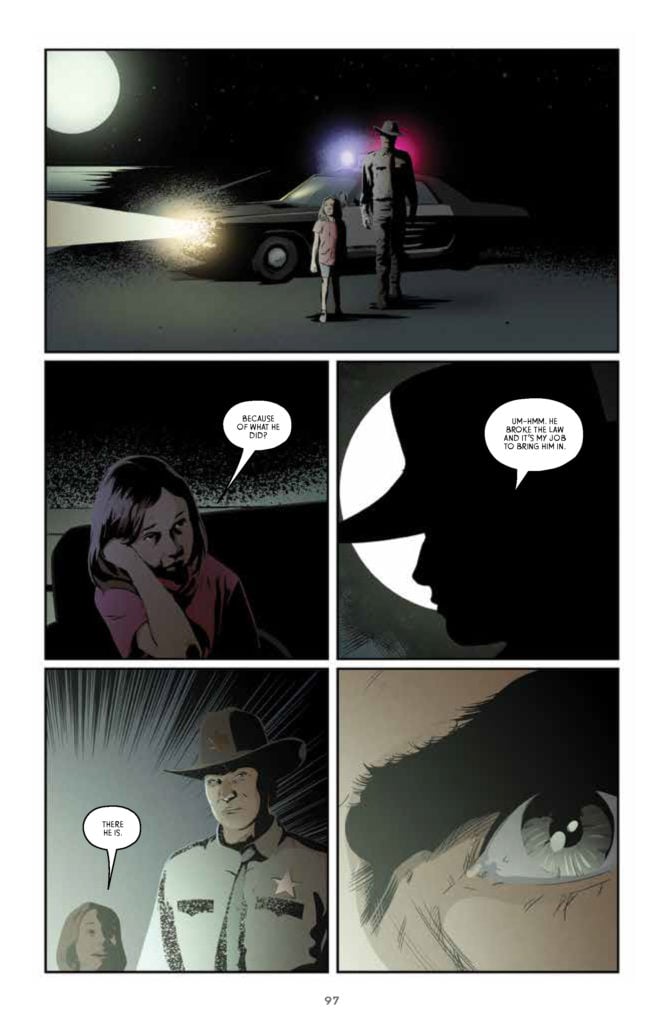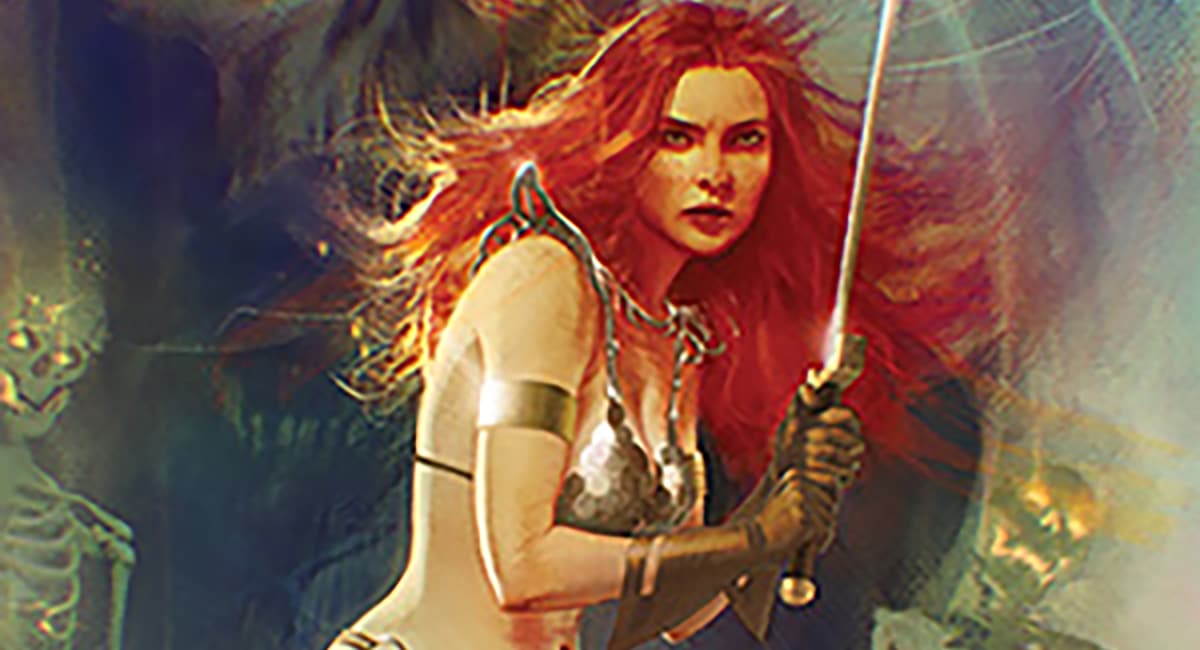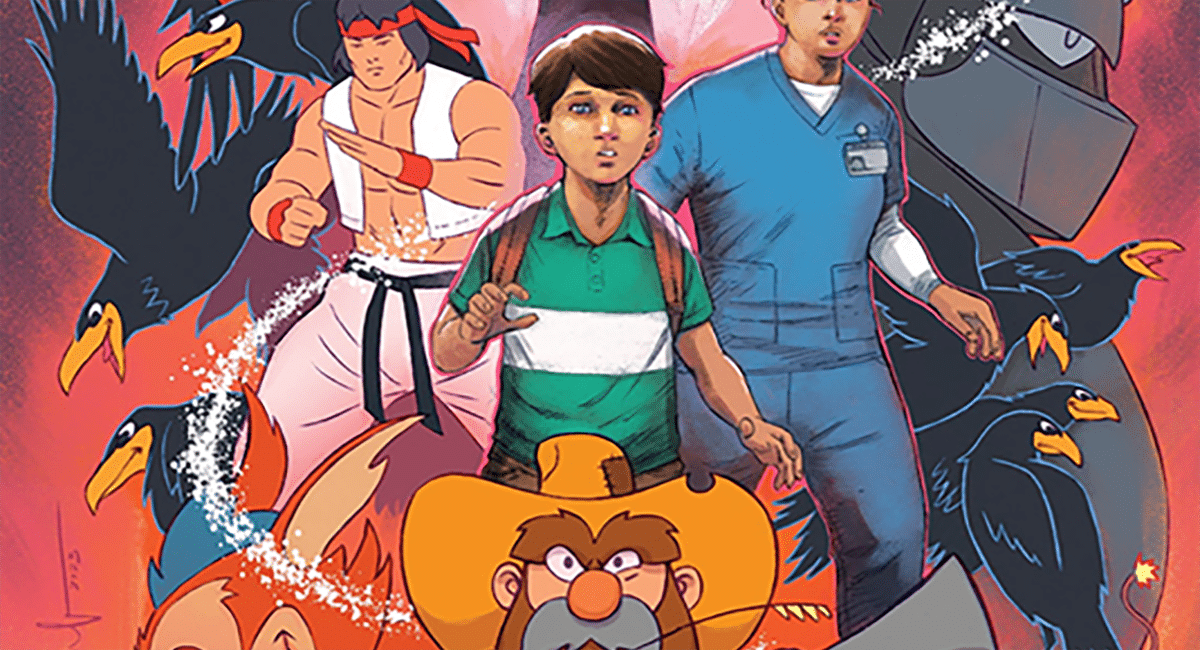The Big Country marks the comics debut of screenwriter and director Quinton Peeples. Peeples is not a total newbie on the comics scene; he has writing credits on Iron Fist and serves as the current executive producer and writer on Marvel’s Runaways. In the new miniseries published by Humanoids, Peeples gets down and dirty with his Texas roots and unleashes an atmospheric, tragic and timely tale set in 1978 that looks at the effects of violence on personal relationships in a tight-knit community through the eyes of its sheriff, Grissom Callahan.
Nancy Powell: Why did you choose noir as the medium for The Big Country?
Quinton Peeples: The tortured, self-destructive and tragic nature of noir characters seemed to fit. And I knew from the beginning this was going to be a crime story on its surface, so all the noir characteristics were already present.
Powell: How is writing for a graphic novel different from film or television?
Peeples: Fundamentally the nature of time is different. The reader is in complete control, whereas in film and television, the story hurtles forward at the speed the editor determines (along with others). Lingering over an image or a line of dialogue is virtually impossible. So I was excited to design something that could be consumed at a slower, more deliberate rate of speed.
Powell: What were some of the challenges of writing for a comic versus a script?
Peeples: The biggest challenge was lack of physical movement. Characters can’t move through space and do things the way they can in screenwriting. So, I had to think in terms of visual snapshots that told the story. And since this was my first time, I was very, very slow. I have decades of screenwriting experience, so in that arena, my writing is almost automatic. I kept wondering, “Why is this taking you so long to complete?” and then I remembered: I’m just learning the medium. It’s going to take a long while to master this form.
Powell: Did you have a vision of the artistic style you wanted for the book?
Peeples: I wanted something very sparse and spare. Similar to the landscape of West Texas where this takes place. I wanted the writing and the art to be efficient and precise.
Powell: And did the watercolors by Dennis Calero conform to your expectations?
Peeples: What we ended up with is much more atmospheric than I imagined. Dennis brought that. The color, the shadows, the heat – that’s all him.
Powell: Grissom Callahan looks a lot like actor Timothy Olyphant of Justified and Deadwood. Coincidence?
Peeples: That’s actually a question for Dennis. I’m kind of the Anti-Alan Moore when it comes to description for artists. I think it’s important to allow them to design things they are excited to draw, since they carry the majority of the work. Dennis’ design of these characters was completely his own.
Powell: How did you and Dennis meet?
Peeples: The folks at Humanoids brought us together, and I am very thankful for that.
Powell: What inspired you to write this specific story?
Peeples: A lot of my personal work is drawn from my own life and interests. In this case I mixed together a bunch of characters from my childhood into a crime story so that I could talk about the effects of everyday violence on people and places.
Powell: How much of the atmosphere you and Dennis created–small town Texas–is taken from your childhood growing up in Texas?
Peeples: Every bit of it. This is drawn from a specific time and place. I was born in San Angelo, Texas (where the story takes place) as were both my parents. I lived in Abilene, but visited my grandparents and spent large portions of summer there. There is rarely a day that goes by that I don’t think about it. To say it has a deep hold on my imagination is to undersell it.
Powell: When approaching The Big Country, which books provided the most influence?
Peeples: The entire Border Trilogy by Cormac McCarthy and, of course, The Killer Inside Me by Jim Thompson.
Powell: The horrific opening sequence of panels takes place in silence, but the victim of that violent episode, along with the sheriff, becomes a main voice in the narrative. That voice has a jarring effect on a story in that it seems to belong to another character. What motivated you to go in that direction?
Peeples: Multiple conflicting voices or points of view was a technique I was interested in exploring. It’s impossible to do in a screenplay (Unless you are Kurosawa). Since everything you are witnessing in the book is a memory, a basic question comes up around reliability – is the narrator leaving something out? Did this actually happen to them, or were they told this story and accepted it as fact? How many false assumptions are being made? (This is a key element in the book). That’s why the question of truth and its elusiveness brings the story to a close. Different people witnessing the same event will have a variety of opinions on what happened. When looking back on an entire life – well, now you’re in really deep water.
Powell: I love how you explore the difficulty of meeting parental expectations in the two competing narratives–of the son always being compared to his cop father and of the little girl to her father. Was that personal?
Peeples: Overall the book is about the multiple ways that the “sins of the father” are visited on children. In this case the “sin” is one of violence and its banal presence in the everyday life of Texas in the ‘70’s. So, yes, it is very personal.
Powell: So what other stories would you like to tell through comics? And which in film?
Peeples: Oh my God. So, so many stories. I love comics and I have loved writing comics. I would show up any time anywhere to do it again. I have traditional superhero stories, horror ideas, more autobiographical work. It goes on and on. And as for screenwriting, I am always cooking up something new. 2020 promises to be a busy time.
Powell: Will The Big Country expand into an ongoing series?
Peeples: I would love that. I have it planned out as a trilogy, but, of course, we need to sell some books for that to happen.
